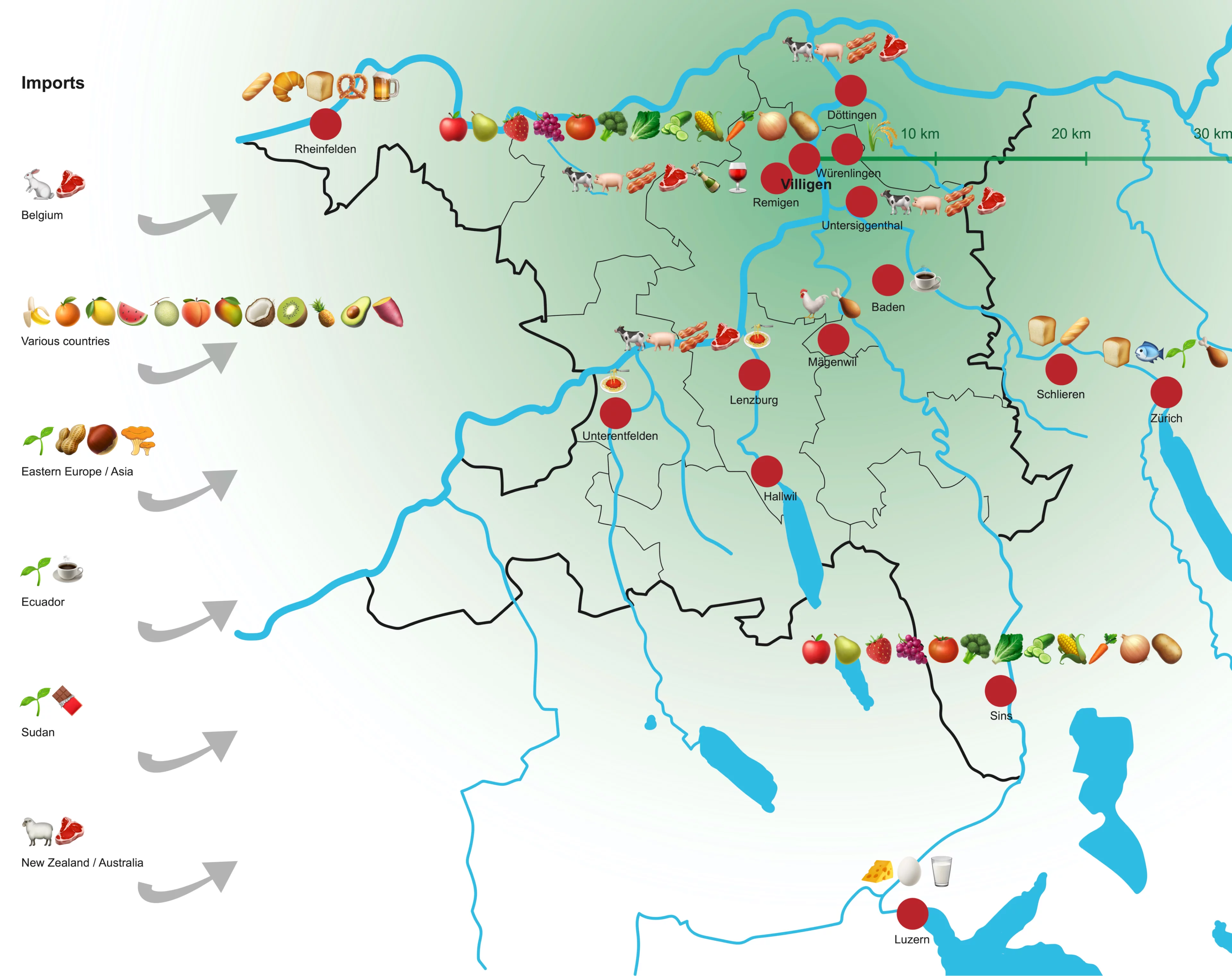by Anna Hartl
Food from near and far
Buying food from your region is way more than just supporting the producers and the economy in your area. By choosing local produce, you certainly make a beneficial contribution to environment protection. Usually, local produce must travel shorter distances before it ends up in your kitchen and this lowers the carbon dioxide emissions of your food.
But that is not all: food that is directly purchased from the vendor grants a certain transparency and allows the customer to understand where the produce comes from and how it was made.
Local products tend to stem from individual farmers or smaller factories. The hereby produced goods are often of higher quality than those from mass production. This can, for example comprise, fresher fruits and vegetables or dairy products and baked goods without preservatives. Hand-made products even support craftsmanship and culinary traditions. Besides contributing to cultural diversity, local crops also make you more aware of what food is currently in season. You may also get more familiar with some regional fruits and vegetables that are outside of your regular cooking habits!
In return to all these benefits, the consumer must invest a little bit of time and effort, maybe even change old habits, to buy food from local vendors. At PSI, the team of OASE helps you with this issue and does select fresh and fine local food for you.
Also at home, local food can be found easily and this can even be fun: make local food a topic of conversation in your family, amongst your friends, or in your group of colleagues at work. Maybe the friend of your colleague lives next to a local cheese vendor. Maybe the uncle of your flatmate tries to get rid of seasonal fruits in his garden? Maybe your neighbors agree to subscribe to a weekly delivery of fresh vegetables from a nearby farmstead? And surely, many farmers provide information about their sales online nowadays, as well.
Eventually, we want to stress that sustainability is an extremely complex topic. Sustainability requires a discussion beyond the frame of this campaign to be treated in great detail. While local food bears the aforementioned benefits, especially in comparison to items from mass production, we encourage the conscious reader to be open-minded and look at this topic from a wider context.
Buy local, think global!
